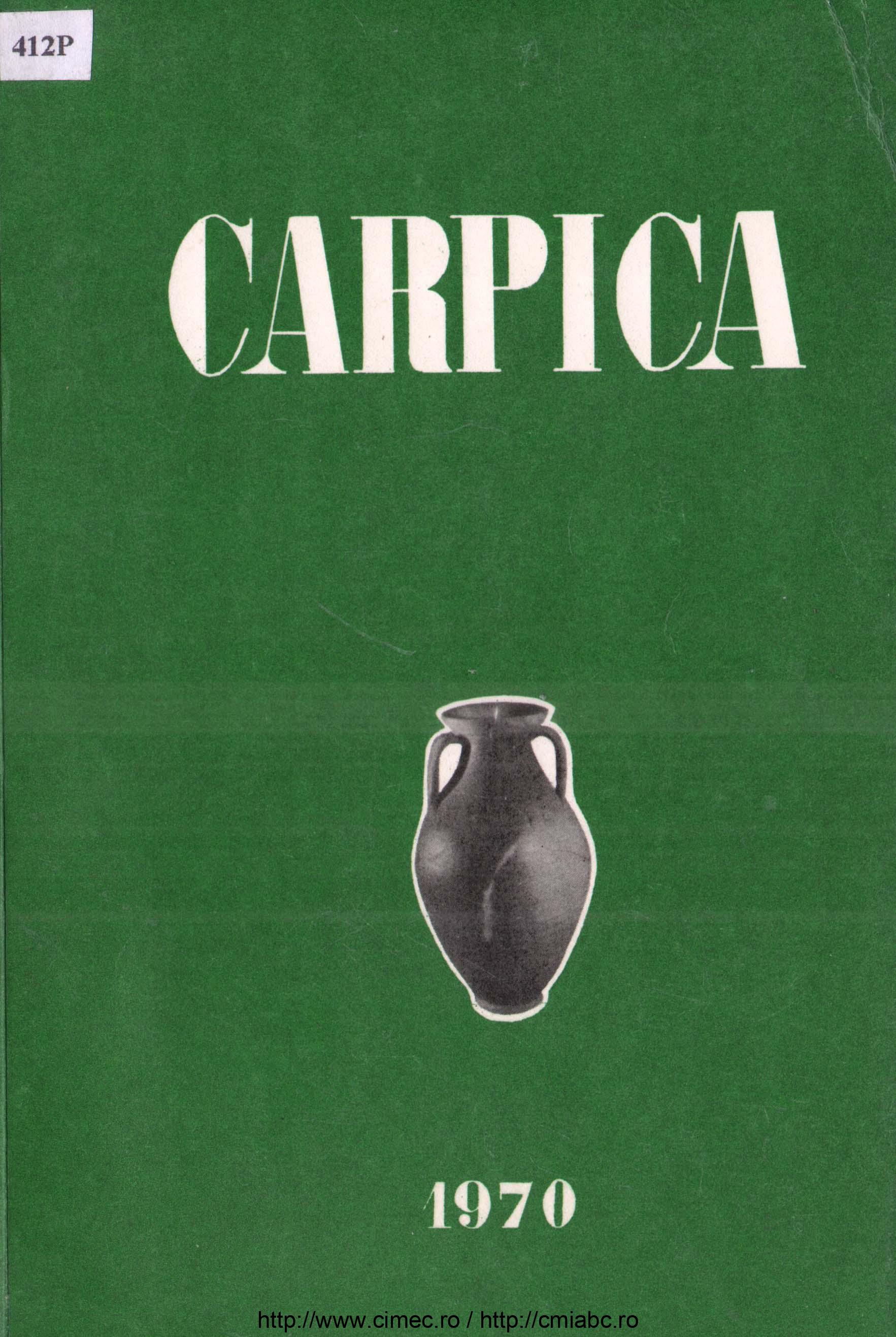
Poiana Uzului, un sat dispărut de pe harta județului Bacău
Articolul prezintă istoria fostului sat Poiana Uzului.
More...We kindly inform you that, as long as the subject affiliation of our 300.000+ articles is in progress, you might get unsufficient or no results on your third level or second level search. In this case, please broaden your search criteria.

Articolul prezintă istoria fostului sat Poiana Uzului.
More...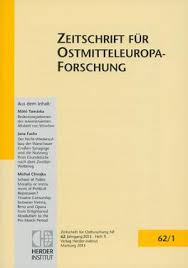
Review of: Minderheitenpolitik im „unsichtbaren Entscheidungszentrum“. Der „Nachlass László Fritz“ und die Deutschen in Ungarn 1934-1945. Hrsg. von Gábor G o n d a und Norbert Spannenb e r g e r . (Schriftenreihe des Instituts für Donauschwäbische Geschichte und Landeskunde, Bd. 17.) Steiner. Stuttgart 2014. 317 S., Ill. ISBN 978-3-515-10377-0. (€ 62,–.). Reviewed by John C. Swanson.
More...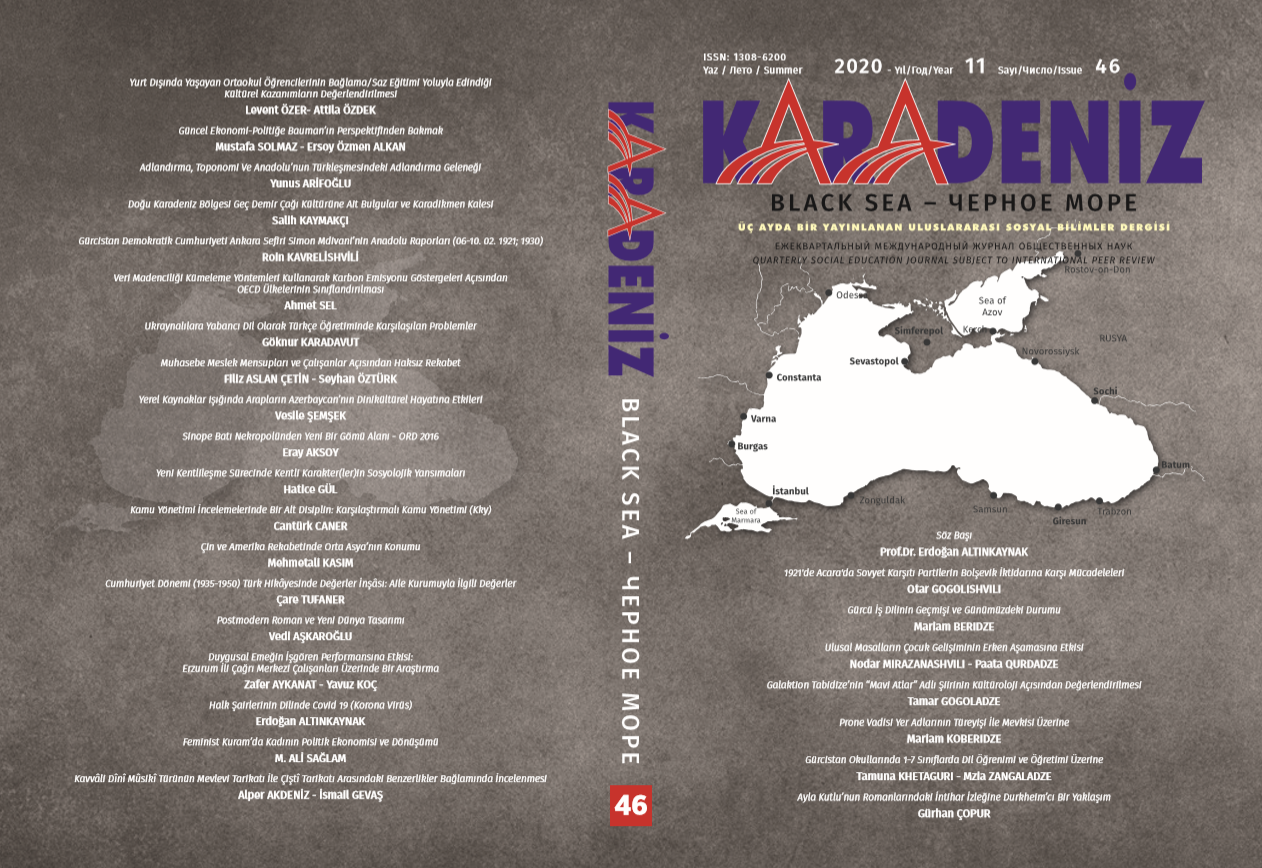
The present paper describes the struggle of the anti-Soviet parties against the Bolshevik authorities in Adjara in 1921. Amid the background of anti-government protests, it discusses the ruthless measures taken by the Bolsheviks against the parties, which resulted in their liquidation. On 25th of February of 1921, Revolutionary Committees of Georgia issued the special decree, which indicated that “Hereafter, an Amnesty is declared for every political party, particular bodies and groups which actively stood out against the Soviet Government and Soviet Party of Georgia” Soviet Government of Georgia have thereby addressed to the former Democrat Government of Georgia: “You should obey the Soviet Government of Georgia, which will forget the past and crimes of all of its enemies and which is willing treat you similarly”. Similar announcements were made by the Communists of Adjara, but Anti-Soviet Parties and the former Government of Georgia never considered this seriously. They did not have recognized the Soviet Government, never collaborated with them and therefore went on a state of disobedience. They have chosen the path of sabotage and the counterrevolution. Thus, the Soviet Government was using harsh measures against them. On April 29th, the Presidium of Communist Party District Committee of Batumi came to a decision that stated following: “Every single person, whoever had profaned and blackened the name of Georgia and Adjara during the Rule of Menshevik Government, should be eliminated.” The Special Commission had been formed in the purpose of banishing counterrevolutionaries from Soviet organizations, factories, and cultural and educational institutions. First of all, the aforementioned decision was aimed against the Multi-party system and the democracy itself, and at the same time, it supported the forming of a Single-Party dictatorship. The Special Commission consisted of the following people: a member of theCommunist Party District Committee Bureau of Adjara - I. Pevtsov, member of Revolutionary Committee - K. Sajaia, and the representative of Presidium of Central Council of Labor Unions of Adjara. The Commission was directly managing the repressions and banishment of the members of Anti-Soviet parties and groups from factories and establishments, implemented by the “Emergency Commission”. There were several Anti-Soviet political organizations and groups at the time in Adjara. Amongst them, formations of Social-Democrat (Menshevik), National-Democrat, Socialist-Federalist, Socialist-Revolutionaries, Kemalists and other parties were considered as the most influential ones. All of the above-mentioned parties except the Kemalist Party, have been formed at the beginning of the 20th Century. In spite of Communist and Kemalist Parties, all of them were fighting for the independence of Georgia, recovery its statehood, democracy, and bourgeois order. In the circumstances of the antagonist class society, their activities were targeted to establish national consolidation and global values. Therefore, it’s natural that they were against, and they led a ferocious fight against the Socialist Ideology and Socialist principles. There was not an essential difference between the programs of National-Democrats and Socialist-Federalists. They were unified in one SocialistFederalists party. At the early times, a vast majority of members of aforesaid parties did not demand the independence of Georgia directly and decidedly, but they have pursued national autonomy within the rule of the Russian Empire. Radicals have appeared in the party since its creation
More...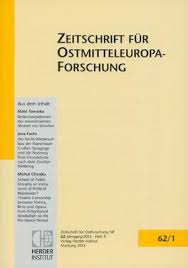
Review of Katharina Friedla: Juden in Breslau/Wrocław 1933-1949. Überlebensstrategien, Selbstbehauptung und Verfolgungserfahrungen. (Lebenswelten osteuropäischer Juden, Bd. 16.) Böhlau. Köln u. a. 2015. 552 S., Ill. ISBN 978-3-412-22393-9. (€ 69,90.). Reviewed by Markus Nesselrodt.
More...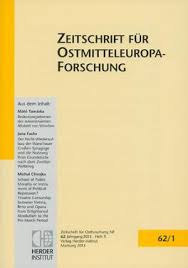
Review of Hans-Christian Harten: Himmlers Lehrer. Die Weltanschauliche Schulung in der SS 1933-1945. Schöningh. Paderborn 2014. 707 S. ISBN 978-3-506-76644-1. (€ 78,−.). Reviewed by Alexander Hesse.
More...
Review of: Deutschland und das Protektorat Böhmen und Mähren. Aus den deutschen diplomatischen Akten von 1939 bis 1945. Hrsg. von Gerald M u n d . (Veröffentlichungen des Collegium Carolinum, Bd. 127.) Vandenhoeck & Ruprecht. Göttingen – Bristol/CT 2014. VIII, 689 S., Ill. ISBN 978-3-525-37305-7. (€ 79,99.). Reviewed by Tatjana Tönsmeyer.
More...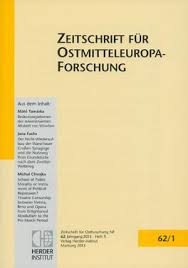
After the end of the First World War, in the years 1919-20, the victorious Allied Powers instituted a total of thirteen plebiscites in order for the local inhabitants to clarify the allegiance of areas between states. Special notice should be taken of the external borders of the new Poland. After the Allies (already at the end of 1919) had renounced the plebiscite in East Galicia on the basis of the impending victory of the Red Army in the Russian Civil War, and had awarded East Galicia without the referendum to Poland, Polish foreign policy from the end of April 1920 aimed at the prevention of referendums in favor of negotiated settlements. The basis for this was the rather poor prospects for Poland to decide the matter in its favor through referendums, prospects which were further diminished through the Polish Soviet War that had begun at 25 April 1920. The policy of sabotage achieved partial successes: four of seven planned referendums were cancelled by the Allies, including when successive Polish diplomatic maneuvers against Czechoslovakia did not manage to secure better results through negotiations. Only with respect to the voting area of Vilna could a complete incorporation in 1922-23 be enforced. The three referendums on the German-Polish border which took place in 1920-21 were the only authentic ones, and ended as expected without a single victory for Poland. In Upper Silesia, the League of Nations decided after all it was for the good of Poland to divide the territory. That the National Democrat dominated Polish National Committee under the leadership of Roman Dmowski, which represented in Paris the Polish interests against those of the Allies, opposed the Plebiscite in a closed minded fashion, is already well researched. In contrast the attempts of the Polish side to bar the use of the Plebiscite already in 1920 has found scarcely any attention, and it once more shows the rejection of this political process. In these acts of rejection and sabotage, it was in no way merely about the basic question of the value of elections by referendum, but also about the enforcement of Polish claims that often did not coincide with the majority opinion of the affected population. That full hearings for the affected parties where they actually took place, turned out negative for Poland, can produce only little surprise. Because the National Democrats and Conservatives were in the majority in the Constitutional Sejm in Warsaw, the 1921 March Constitution of Poland did not contain any elements of direct democracy.
More...
Is twenty years enough time for the creation of a functioning democratic system? This question was posed by no less than Tomáš G. Masaryk himself. In his abdication from the Presidency of Czechoslovakia, he expressed the opinion that the Republic would need no less than fifty years in order for its society to become democratic. The continued existence of a democratic system is dependent upon the respect of democratic rules. As the divergence between the declared democratic values and norms, on the one hand, and actual policy, on the other, becomes larger and larger, society becomes increasingly disillusioned with the functioning of the democratic system. In consequence of this disillusionment, the affection of parts of society increases for authoritarian movements and parties, which offer promises of improvement that are: clear, definite, and quick to take effect. The democratic concept and its reception in the Slovak part of the First Czechoslovak Republic are at the forefront of this paper. In order to evaluate the perception of democracy as a disappointing experience, it aims to clarify first what was understood at that time in Slovakia by “democracy”, the expectations that the population associated with democracy, and to what extent the Slovak society at the end of 1918 and start of 1919 was prepared for the new democratic order. Furthermore, the issue is clarified as to what experience the population in the Slovak part of Czechoslovakia had with the democratic system, and how the Slovak political actors responded to the Czechoslovak concept, its interpretations and its instrumentalization.
More...
Review of: Dariusz Jerczyński: Józef Kożdoń a narodowość śląska. [Josef Koždon und die schlesische Nationalität.] Narodowa Oficyna Śląska. Zabrze 2011. 289 S., Ill. ISBN 978-83- 60540-08-4. Reviewed by Kai Struve.
More...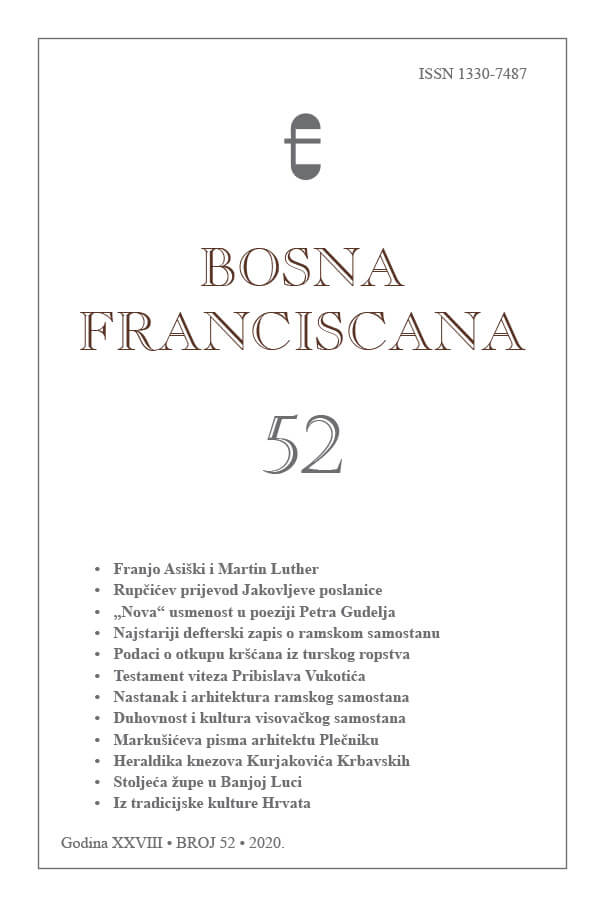
Na proljetnom definitorijalnom sastanku provincije Bosne Srebrene, održanom u Sarajevu od 10. do 13. svibnja 1932. godine, župnik župe Sv. Ante Padovanskog u Beogradu fra Arkanđeo Grgić premješten je u Tuzlu, a na njegovo mjesto postavljen fra Josip Markušić (1880–1968) koji je već od 1931. bio član beogradskog samostanskog bratstva. Sada, u novoj funkciji, on je bio zadužen i za brigu oko nastavka gradnje svetišta i crkve koja je povjerena slovenskom arhitektu Josipu (Jože) Plečniku (1872–1957) 1928. godine. Prvi službeni Markušićev dopis Plečniku u novoj funkciji nosi datum 14. lipnja 1932. godine. U njemu se Markušić žali da su iz Beograda na druge službe premješteni bivši gvardijan fra Bernardin Sarić (1878–1940) i župnik fra Arkanđeo Grgić (1889–1975), kojima najviše pripada zasluga da je Plečnik prihvatio izradu plana za izgradnju crkve, ali što i njega samoga čini sretnim da će biti „dionik u izgradnji ove monumentalne crkve, čijoj originalnosti u isticanju religiozne logike, shvaćanju ljepote, te vezanju svete umjetnosti, ljepote i molitve u jedinstven pojam sigurno nema ravne u Jugoslaviji“.
More...
Review of: Gerd Behrens: Der Mythos der deutschen Überlegenheit. Die deutschen Demokraten und die Entstehung des polnischen Staates 1916-1922. (Die Deutschen und das östliche Europa. Studien und Quellen, Bd. 9.) Lang-Ed. Frankfurt am Main 2013. 749 S. ISBN 978-3-631-63466-0. (€ 99,95.). Reviewed by Pascal Trees.
More...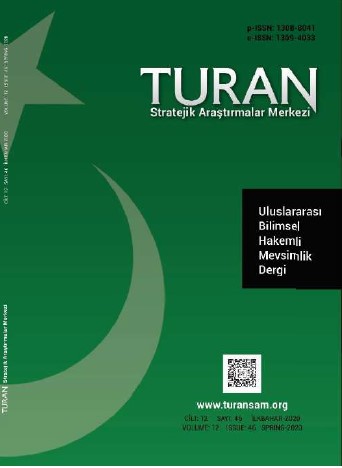
Modern type schools of Ahiska Turks, which are a unique people with their rich culture, have an important historical background. It is an important research subject to reveal the entire landscape of the education life of the Turks in Georgia. This article can be described as one of the first experiences, first steps in this direction. In this article, prepared within the framework of the scientific research project carried out at Ardahan University, the activity aspects of the schools of Ahiska Turks before the exile of 1944 are illuminated in the Meskhet-Cavakheti region in the south-west of Georgia. Firstly, the materials of Turkish newspapers published in the region between 1930 and 1944 were considered. We have personally reviewed these newspapers in the F and P archive funds of the National Library of the Georgian Parliament. In the research process, historical-pedagogy analysis method was applied.
More...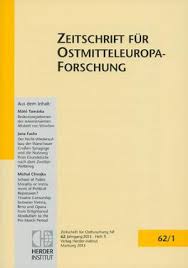
Review of: Felix Schnell: Räume des Schreckens. Gewalträume und Gruppenmilitanz in der Ukraine, 1905-1933. Hamburger Edition. Hamburg 2012. 575 S. ISBN 978-3-86854-244-8. (€ 28,–.). Reviewed by Mathias Voigtmann.
More...
Review of: Anna Moskal: Im Spannungsfeld von Region und Nation. Die Polonisierung der Stadt Posen nach 1918 und 1945. (Studien zur Sozial- und Wirtschaftsgeschichte Ostmitteleuropas, Bd. 23.) Harrassowitz. Wiesbaden 2013. XIV, 298 S., Ill. ISBN 978-3-447-06755-3. (€ 56,–.). Reviewed by Agnieszka Zabłocka-Kos.
More...
Review of: Die Grafschaft Glatz zwischen 1918-1946. Beiträge über eine schlesische Kulturlandschaft. Festschrift für Franz Jung zum 75. Geburtstag. Hrsg. von Horst-Alfons Meißner und Michael Hirschfeld . Aschendorff. Münster 2012. 524 S., Ill., Kt. ISBN 978-3-402- 12896-1. (€ 29,80.). Reviewed by Tomasz Przerwa.
More...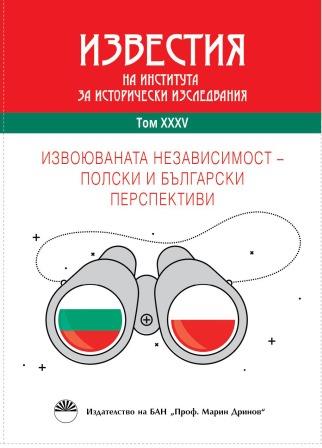
The study examines the activity of Polish diplomacy towards Bulgaria during the crucial period after WW I and the emergence of a new arrangement of international forces after the end of the armed conflict. The developments analyzed are presented against the broad background of the conditions under which both states, dependent on the decisions and activities of Great Powers, carried out their policy. National security considerations, including the great importance of transit routes from Southern Europe to Poland, but also historical ties and interest in the cultural heritage of partners as well as establishing and developing economic relations influenced the nature and scope of the actions undertaken, often carried out with participation of leading politicians of both countries. A significant role in this process was played by Tadeusz Grabowski, an expert in the history and culture of Bulgaria. He was the first Polish diplomat in Bulgaria after Poland regained its independence and fulfilled his mission with great commitment. The joint efforts of both countries during this period created a lasting basis for mutual relations.
More...
The aim of the article is to present selected aspects of the activities of the Polish legation in Sofia in the years 1930–1941, based on the analysis of documents contained in the “Polish Diplomatic Documents” series. These sources indicate the intentions and main directions of activities of the Polish diplomatic mission in the political field. Due to the fact that the selection of Polish diplomatic documents included in the series was based on the criterion of importance, the analysis will also show the significance of the diplomatic mission in Sofia in Polish foreign policy of the period examined.
More...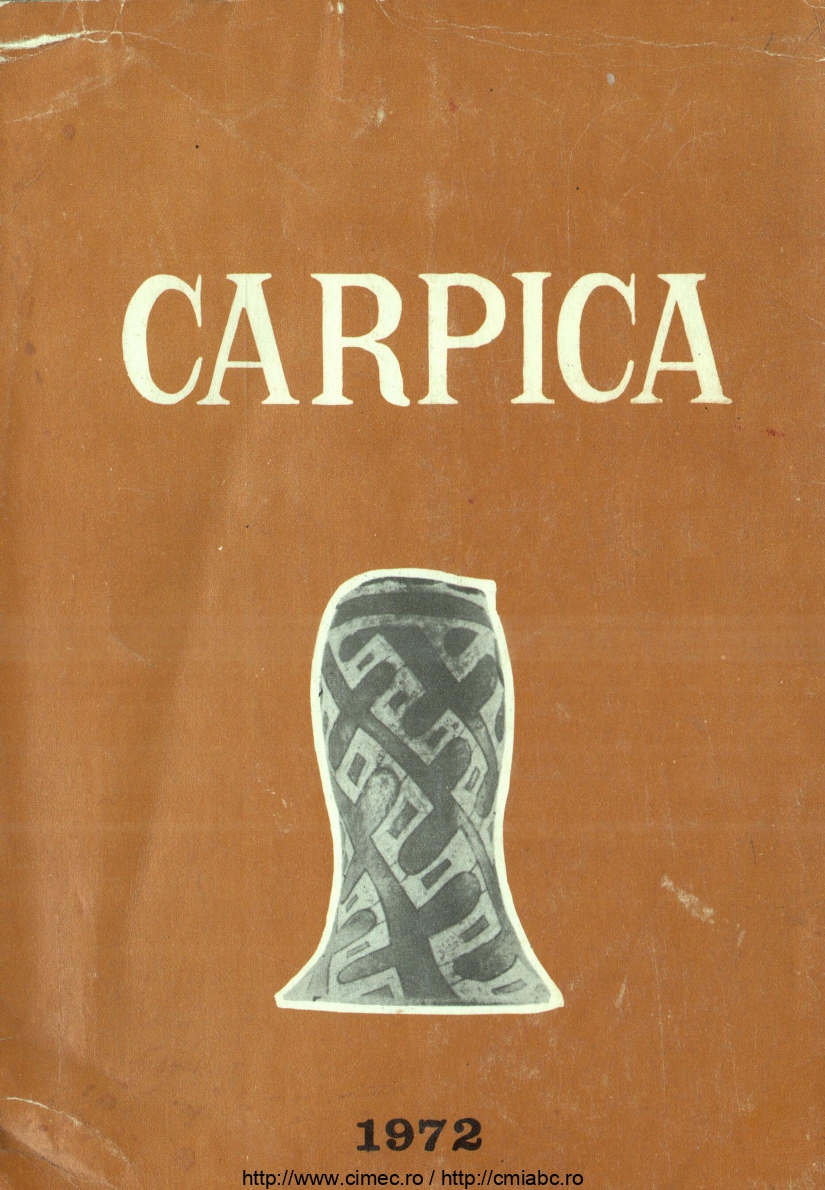
Articolul prezintă informații cu privire la economia Depresiunii Dărmănești de-a lungul timpului.
More...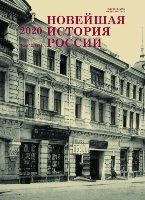
The article explores the institutional aspect of the politics of memory of World War I in Soviet Russia/USSR in the 1920s and 1930s. The author characterizes the factors playing a special role in the politics of memory and the importance of ‘reformatting memory’” about the war. The role of the most influential actors in the politics of memory, which played a decisive role in the adoption of the concept of “imperialist war” in mass consciousness of early Soviet society, is revealed. These major actors were the Central Committee of the RCP(b)/CPSU(b), the Red Army, and the Comintern. The specificity of activities of the Red Army and Comintern and their interaction in managing mass political campaigns on anniversaries of the war is discussed. The organizational mechanism of mass commemorations devoted to the “imperialist war” was reconstructed on the basis of archival materials of the Agitprop Central Committee of the RCP(b)/CPSU(b), the Agitpropotdel of the Political Administration of the Red Army, and the Agitprop Comintern Department. The special role of “anniversary” campaigns in promoting the concept of “imperialist war,” involving the masses in public commemorations, is explored. The author analyzes the activity of state structures in creating the Associations of World War veterans, the institutionalization and ideologization of their commemorative practices, and displacement of alternative memory narratives. The article characterizes the evolution of the politics of memory andthe adjustment of the concept and change in the use of the image of war in propaganda of the mid-late 1930s.
More...
Using a broad source base, including previously unpublished materials, this study examines teaching in Magnitogorsk in the period of accelerated industrialization as a unique emotional community with a special type of daily life.. The predominant historical sources are recollections of Magnitogorsk teachers, written at different times relative to the time of studied events. The article uses methodological tools proposed by Iu. Bessmertny, H. R. Iausom, J. Plamper, and W. Reddy. The social portrait of a Magnitogorsk teacher was far from ideal. Teachers were dominated by women under the age of 20, with minimal experience and education, but official discourse and memories about teachers at Magnitostroi drew on a universal reference image of a professional Soviet teacher. The educational community at Magnitostroi was a complex emotional microcosm in which a variety of emotional repertoires coexisted, and teachers themselves belonged to different emotional communities that demonstrated sometimes unusual emotional reactions. Features of social conditions, the overall level of improvement of teachers’ lives and work of teachers, defined the landscapes of everyday life and features of the dominant emotional regime. The last was an official state ideology, adapted to the specific sociocultural and individual peculiarities of city, community, and people.
More...